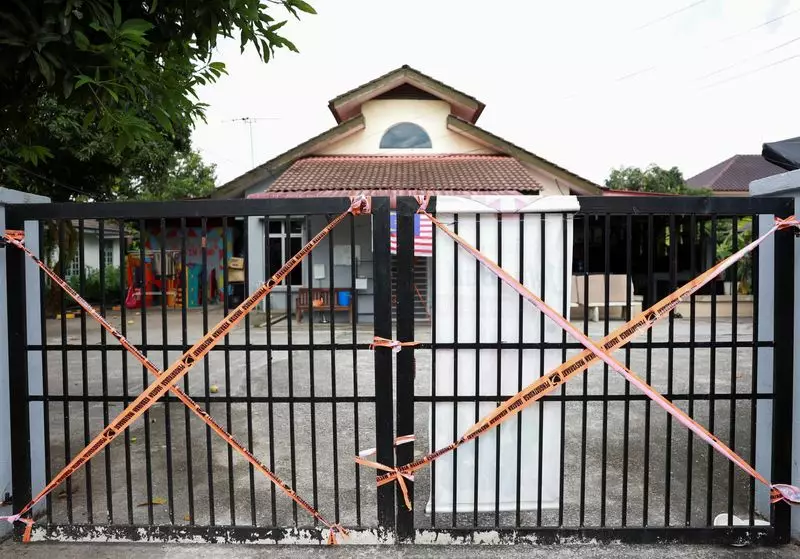Global Ikhwan Services and Business Holdings (GISB) presents itself as a Malaysian conglomerate dedicated to upholding Islamic principles, echoing the teachings of the Prophet Muhammad. However, recent events have forced a reassessment of this organization, drawing significant public scrutiny over its alleged involvement in the mistreatment of vulnerable children and youths at charity homes purportedly managed by GISB. The spectacle of hundreds of children rescued under allegations of sexual abuse paints a grim picture, potentially exposing a rift between the firm’s proclaimed values and its troubling past tied to a sect that the Malaysian government declared unlawful three decades ago.
GISB’s connection to the controversial sect Al-Arqam looms large over its operations and public image. Banned in 1994, Al-Arqam was founded in 1968 by Ashaari Muhammad, renowned for his charismatic leadership and beliefs perceived by the government as heretical. Although GISB endeavors to disassociate from Al-Arqam’s contentious doctrines, the acknowledgment of its founder as part of its legacy invites skepticism about its true intentions. The once-successful movement boasted tens of thousands of adherents, yet allegations of deviations from mainstream Islamic beliefs curtailed its growth and eventually led to its dissolution.
Despite the organization’s attempts to present a reformed image, their recent admissions surrounding inappropriate conduct within their youth homes—acknowledging ‘one or two’ incidents of sodomy—underscore the complexities of their operations. Such revelations are troubling, raising questions about how deep the roots of abuse lie within the organization.
The public outcry following the police raids signifies a growing discontent with GISB. Islamic scholars and leaders have been urging the government to take decisive action against what they view as a proliferating threat masked as charity. The investigative diligence surrounding allegations of exploitation within GISB suggests the existence of deeper systemic problems, with reports of former members detailing abuses that have lingered for years. The consistency of these accounts highlights a troubling reality for the organization and demands a serious examination of its practices and associations.
Moreover, law enforcement agencies are delving into a variety of troubling allegations, including potential money laundering and the operation of religious schools that warrant further scrutiny. With multiple angles of inquiry initiated, authorities are preparing to present their findings to the government, shedding light on potentially deviant teachings entrenched within the framework of GISB’s operations.
The investigation has also revealed harrowing insights into the lives of the youths rescued. Many displayed clear signs of emotional trauma, neglect, and the scars of abuse, with some having suffered unspeakable violations. Local residents, caught unawares by the unfolding scandal, have expressed disbelief and concern. The reactions from individuals within the community speak volumes about the pervasive trust placed in organizations dedicated to faith-inspired service.
The imam of a local prayer hall in Bukit Beruntung exemplifies this collective shock, indicating a substantial disconnect between the organization’s image and the alleged realities behind closed doors. For a community that once viewed GISB as a paragon of Islamic values, the allegations serve as an alarming breach of faith, compelling local leaders and community members to confront uncomfortable truths about the organizations they support.
The intertwining of faith, power, and potential exploitation in this scenario calls for a rigorous reassessment of how organizations that operate under the guise of charity are held accountable. The case of GISB underscores the importance of vigilance in ensuring that the teachings of Islam are upheld in a manner that genuinely protects and nurtures vulnerable members of society. As investigations unfold, it is crucial for the government, community leaders, and the public to foster an environment that champions transparency, ethical conduct, and the safeguarding of those who cannot protect themselves. The unsettling revelations surrounding GISB could serve as a catalyst for broader reforms within Malaysia’s charity sector—if society is willing to confront the truths and put forth measures to prevent similar incidents in the future.

